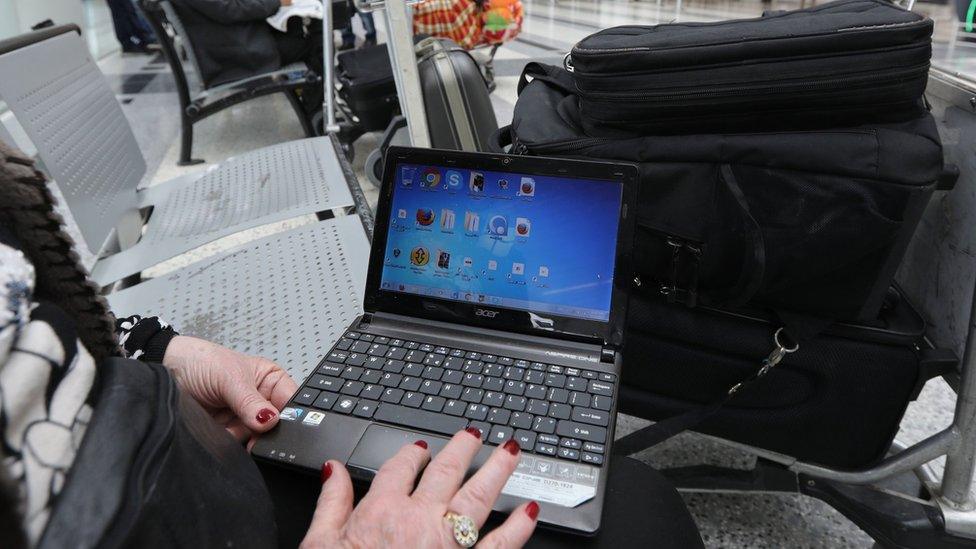US and EU reject expanding laptop ban to flights from Europe
- Published

US and EU officials have decided against a ban on laptops and tablets in cabin baggage on flights from Europe.
But after a four-hour meeting in Brussels to discuss the threats to aviation security, officials said other measures were still being considered.
US officials had previously said they were looking into extending to Europe a ban on electronics on flights from eight mostly Muslim countries.
The measure was introduced over fears a bomb could be concealed in a device.
The meeting was requested by EU officials after recent reports suggested US authorities had new information regarding laptop parts being turned into explosives.
Details of a specific threat have not been made public.
An EU source described the briefing as vitally important.
The authorities had been assured by their US colleagues that the meeting signalled the start of an era of better communication on security issues under President Donald Trump.
The US restrictions, introduced in March, apply to devices "larger than a smartphone" from the cabins of flights from Turkey, Morocco, Jordan, Egypt, the United Arab Emirates, Qatar, Saudi Arabia and Kuwait.
The UK issued a similar ban on flights from six countries.
David Crowder demonstrates the dangers of faulty batteries
Steve Landells, a safety expert at the British Airline Pilots Association, said there was a greater risk of lithium battery fires if larger devices were kept in an aircraft's hold.
"Given the risk of fire from these devices when they are damaged or they short circuit, an incident in the cabin would be spotted earlier and this would enable the crew to react quickly before any fire becomes uncontainable," he said.
"If these devices are kept in the hold, the risk is that if a fire occurs the results can be catastrophic; indeed, there have been two crashes where lithium batteries have been cited in the accident reports."
- Published22 March 2017

- Published21 March 2017
